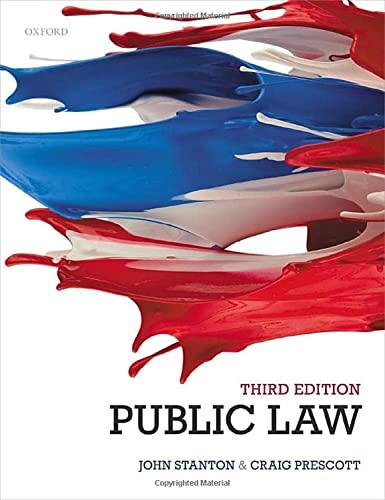Question
1) Read the attached story from the Philadelphia Legal Intelligencer from 2010,Legal story English Muffin Noncompete. The story relates that one of seven executives from
1) Read the attached story from the PhiladelphiaLegal Intelligencerfrom 2010,Legal story English Muffin Noncompete. The story relates that one of seven executives from the company that made Thomas' English Muffins was lured away and offered a senior position at Hostess, which also made its own English muffins.The executive was among a handful of people that was privy to the recipe, the engineering and the process trade secrets used by Thomas' to make the famous "nooks and crannies" in the product.
It did not help that the executive was found to have downloaded sensitive documents from his company laptop onto an external hard drive on his last day on the job making nooks and crannies and did not disclose that he was changing jobs until the last minute.Ultimately, the federal court in Philadelphia barred the executive from going to work for the competition, believing it would be inevitable that he would disclose trade secrets to Hostess.
What is your impression of the ruling?Fair?Went too far?Be sure to review the section in the text about trade secrets before responding.
2) The elements of copyright infringement are 1) that two works are substantially similar; 2) that the originator of the work allegedly infringing on the copyrighted material had access to the earlier work and 3) that the work was used without permission.
read the judge's opinion from the lawsuit, Bright Tune Music vs Horrisongs case. What do you think?Is "My Sweet Lord" the same song as "He's So Fine"?
Explain your position.
3) Fair Use?
Fair use is any copying of copyrighted material done for a limited and "transformative" purpose, such as to comment upon, criticize, or parody a copyrighted work. Such uses can be done without permission from the copyright owner. In other words, fair use is a defense against a claim of copyright infringement. If your use qualifies as a fair use, then it would not be considered an illegal infringement.
Famous street artist Shephard Fairey created the Hope poster during President Obama's firstpresidentialcampaign in 2008. The design rapidly became a symbol for Obama's campaign, technically independent of the campaign but with its approval.
In January 2009, the photograph on which Fairey allegedly based the design was revealed by the Associated Press as one shot by AP freelancer Mannie Garcia with the AP demanding compensation for its use in Fairey's work. Fairey responded with the defense of fair use, claiming his work didn't reduce the value of the original photograph.
The artist and the AP press came to a private settlement in January 2011, part of which included a split in the profits for the work.
Significance
It's unlikely that Garcia's work could have ever reached the level of fame it did, if not for Fairey's poster. Garcia himself stated he was "so proud of the photograph and that Fairey did what he did artistically with it, and the effect it has had," but still had a problem with the fact that Fairey took the image without permission and without credit for it's originator.
What are your impressions?Fair use or infringement?Briefly explain.
Step by Step Solution
There are 3 Steps involved in it
Step: 1

Get Instant Access to Expert-Tailored Solutions
See step-by-step solutions with expert insights and AI powered tools for academic success
Step: 2

Step: 3

Ace Your Homework with AI
Get the answers you need in no time with our AI-driven, step-by-step assistance
Get Started


